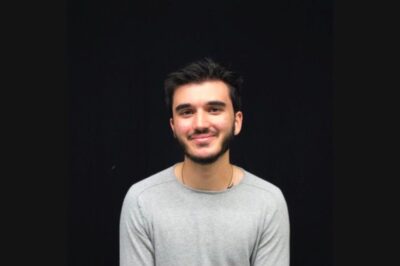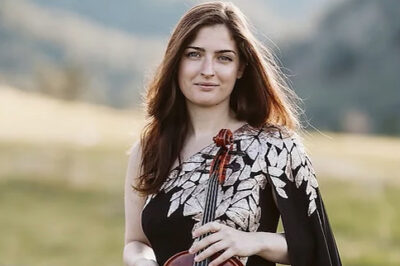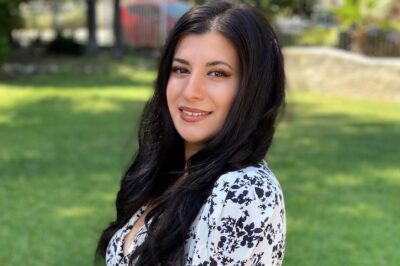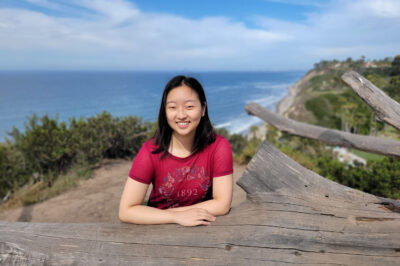David Rodgers
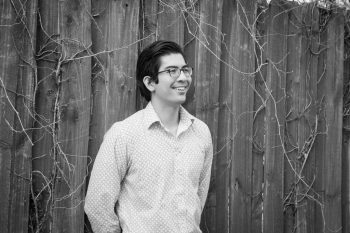
David Rodgers studied at PCM for six years—first as a chamber music student, then as a piano student—with Dr. Susan Svrček. David just graduated from Vanderbilt University’s Blair School of Music where he majored in Piano Performance with a concentration in jazz studies.
He is currently an active member of Keb’ Mo & Taj Mahal’s touring band as the keyboardist and assistant musical director; and this week, he released his debut album, Songs For A Generation, which includes ten original compositions, all written within the past year.
Q&A:
PCM: When did you start playing piano? Did you always see the piano as your primary instrument?
David Rodgers: I started playing piano at age 4. I think the piano is remarkably intuitive in how it teaches someone how to conceptualize music. After all, there’s learning about playing the piano and then there’s learning about music in general. These are two different processes that I’m so grateful were more or less melded into a joint process for me growing up.
I didn’t really try learning another instrument until 3rd Grade (cello) and then again in 6th Grade (alto saxophone). In college, I took a semester of jazz voice, dabbled in teaching myself trumpet, and have taken jazz drum lessons for the past year and a half. Of course I love all instruments, and I believe that each instrument informs my greater sense of musicality in a different way (just as learning another language informs a greater sense of possibilities of communication), but the piano will always be my primary instrument. Even when I am learning or playing other instruments, or listening to music, I visualize the keyboard in my mind and track the music as if I were seeing it played on a piano.
PCM: You originally went to Vanderbilt to major in computer science, but graduated as a piano performance major, with a concentration in jazz. What caused you to shift gears so dramatically?
DR: Well, that’s somewhat misleading—I was accepted to Vanderbilt’s Blair School of Music (as a classical piano performance major) with a full scholarship as a Cornelius Vanderbilt Scholar when I applied in 2013. But yes, a big draw to Vanderbilt for me originally was the potential to double major with an engineering degree like computer science. I pursued this for about a year and then decided it wasn’t the right path. For me, I simply loved music too much to be dividing my time in a way that excluded music for a great deal of that time. Of course, that’s not to say that it can’t be done, and I have a number of great musician friends who pursued the double major path very successfully.
My path to jazz is perhaps a little unconventional. I didn’t take a formal jazz lesson until I arrived at Vanderbilt University as a freshman four years ago. However, I’d always been an improviser, and looking back at my childhood, I was always interested in discovering and creating. Both my parents are engineers, so whether it was a conscious approach or not, I think I originally treated learning jazz as a glorified engineering problem. I didn’t “know” what transcribing was, but I was transcribing early on in middle school and high school. For me, it was a matter of what is Oscar Peterson or Chick Corea playing, why does it sound like that, and how can I replicate those notes, rhythms, and affects? Very much like an approach to solving an engineering problem—how can I fix the problem of not knowing what’s happening in this piano solo in a creative way?
There’s a great feeling of freedom, excitement, and exhilaration in improvising for me. The sense that anything can happen at any point, whether good or bad, the sense of infinite possibilities, the ability to explicitly interact with your audience in real time and convey all these things—I think that’s what made me fall in love with jazz and improvising, and that’s certainly a large part of why I still love it today.
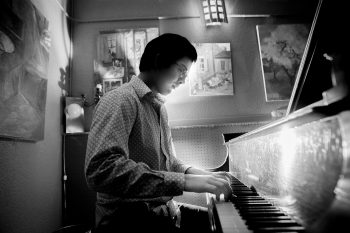
PCM: You are about to embark on a world tour with two blues legends (Keb’ Mo’ and Taj Mahal). Going into the tour, what are you most excited for and what are you most nervous about?
DR: I’m excited to learn. Keb’ and Taj are living legends who encapsulate worlds of tradition in who they are and by extension, what their music represents. I think one of the most valuable things for young people to have access to are other perspectives—especially from older, wiser, successful individuals. To learn how someone approaches something, to learn why someone does what they do, and in a musical setting, how does this person listen, what is he listening for, how did he learn what he knows—those are the things I’m interested in… approaches, perspectives, wisdom.
I’m really not nervous about anything. I had the wonderful opportunity to study with a great mentor of mine, Jeff Coffin (3x-Grammy Winning saxophonist with the Dave Matthews Band), and very early on, he instilled in me a deep reverence for our craft. His words “serve the music, serve your fellow musicians, serve your audience, and you will be served” are a mantra I’ve adopted and done my best to realize fully. The amazing thing for me is that this approach and mindset has never failed me. And until it does, I really can’t be worried or nervous about anything.
PCM: How did PCM prepare you for life as an eventual music major in college and a professional musician?
DR: In a lot of ways, PCM modeled my college experience as a music major. With its variety of offerings in private instruction, chamber music, music theory, music history, among everything else, I really feel that I had a comprehensive music education that couldn’t have prepared me any better for my experiences in college.
One of the aspects of PCM and Vanderbilt’s Blair School of Music that I love so much is the creative freedom to explore and try new things. I remember my private piano teacher for many years at PCM, the wonderful Dr. Susan Svrcek, would always encourage me to think critically about the music—why did Beethoven write it this way and not another way? He could have written this or approached this resolution in so many different ways, but he chose this particular approach… why? These kinds of questions really elevated my attention to detail both as a performer and also as a composer.
Dr. Svrcek was also very supportive of my compositional endeavors, and on many occasions, even insisted that I perform my original music on recitals! Having now just released my debut album of all original music, “Songs For A Generation,” on May 15, 2017, I really think that this early support of my creative spirit instilled a sense of musical confidence as well as a deep drive to always strive to be my best in every aspect of what I do.
This high-level, supportive, and demanding environment prepared me in so many different ways for the rigors of being a music major and now a professional musician.
PCM: What music are you most listening to today?
DR: Wow—there’s just so much great music to listen to! I always make an effort to ask my friends what interesting music they’re listening to so I balance what I know with what I don’t know. I think that’s really important in constantly learning and expanding what music you’re aware of. A few albums I’ve listened to in the past week…
Allegresse – Maria Schneider
Mockroot – Tigran Hamasyan
Open, to Love – Paul Bley
To Pimp A Butterfly – Kendrick Lamar
The Offense of the Drum – Arturo O’Farrill, The Afro Latin Jazz Orchestra
Gling-Glo – Björk
Bon Iver – Bon Iver
Highway Rider – Brad Mehldau
Bill Evans: His Last Concert in Germany – Bill Evans Trio
I’m also always listening to classical music… Bach, Brahms, Beethoven, you name it. I love music that balances intellectual inquiry with deep emotional realization.
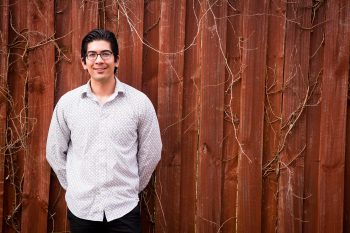
PCM: What advice would you give to young music students?
DR: I’ll answer this question with an anecdote.
Wycliffe Gordon, an incredible jazz trombonist, educator, and musician, came to Vanderbilt a while back to conduct a masterclass and to perform, and I had the opportunity to not only play for him, but play alongside him. Knowing who he was, the incredible resume he has, and in deep respect for him as a musician, I found myself nearly floundering at the keyboard. I was thinking so much about what to play, that I wasn’t really listening to what was going on around me, and by extension, I really wasn’t playing anywhere near what I was capable of. In my lesson with Jeff Coffin later that day, we talked about what had happened. Jeff looked me dead in the eyes and said, “Look man, you don’t need permission. You don’t need permission to be yourself.”
As soon as he said that, I felt as if the walls I’d constructed around myself—what I’d led myself to believe was possible and impossible—were completely blown away. And so that’s my advice to young music students. Find a balance of reverence for the music and those around you, but do so in a way that allows you to feel free and uninhibited by judgment. At the end of the day, you don’t need permission to be who you are, to create, to discover, to delve into what you find interesting. Live, explore, and create from a place of service and gratitude, authenticity and love.
